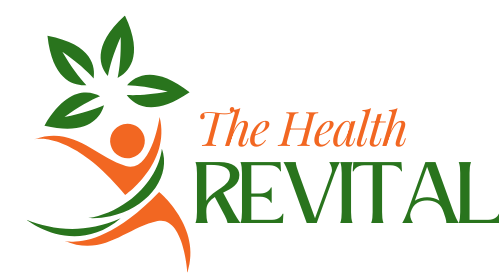What Would You Like to Learn About Women’s Health?
Women’s health is an essential topic that deserves attention and care at every stage of life. Building healthy habits not only helps prevent diseases but also prolongs life and improves overall happiness. In the hustle and bustle of daily responsibilities like work, family, and personal goals, women often overlook their health. However, prioritizing women’s health is vital to ensure a long, vibrant, and fulfilling life. Here’s a detailed guide to adopting healthy practices and understanding key aspects of women’s health.
Get Moving for Better Women’s Health
Heart disease ranks as the leading cause of death for women globally. In the United States alone, 1 in 4 women suffers from heart disease. Regular physical activity is a powerful way to reduce this risk and improve mental health and bone strength.
Aim for at least 30 minutes of movement four days a week. Cardiovascular exercises, including walking, jogging, dancing, or swimming, can strengthen your heart and improve circulation. Keep your routine exciting by trying new activities or involving a workout buddy to stay motivated.
Incorporate strength training alongside cardio. Building muscle not only boosts your metabolism but also supports bone density, which is crucial for postmenopausal women. A balanced fitness regimen addresses key women’s health concerns like osteoporosis and weight management.
Nourish Your Body with a Balanced Diet for optimal Women’s Health
A well-balanced diet is the cornerstone of women’s health. Beyond maintaining a healthy weight, a nutritious diet fuels your body with the vitamins and minerals it needs to thrive.
Focus on fresh, unprocessed foods such as:
- Fruits and vegetables
- Whole grains
- Fiber-rich foods like beans and leafy greens
- Lean proteins like poultry, fish, and legumes
- Healthy fats, such as those in nuts, seeds, and olive oil
Processed and packaged foods are often loaded with added sugar, unhealthy fats, and preservatives. These can lead to long-term health issues like obesity, diabetes, and heart disease. A tip for smarter shopping: stick to the perimeter of the grocery store, where fresh produce and proteins are typically located.
Additionally, taking a daily multivitamin can fill nutritional gaps, but the best way to meet your needs is by eating a variety of colorful, whole foods.
Healthy Aging for Stronger Women’s Health
Aging gracefully involves more than just skincare. It’s about making lifestyle choices today that will protect your health in the future. Regular exercise, a balanced diet, and mental wellness practices are the foundation of healthy aging.
One critical aspect of aging is skin health. Sun exposure is one of the leading causes of premature wrinkles, age spots, and even skin cancer. Protect your skin by applying sunscreen with SPF 15 or higher daily, wearing protective clothing, and avoiding direct sunlight during peak hours.
Moreover, regular health screenings, such as mammograms and bone density tests, can help detect early signs of common issues like breast cancer and osteoporosis. Healthy aging also involves avoiding tobacco, limiting alcohol consumption, and learning stress management techniques like yoga or meditation.
Enhance your skincare routine with FoxTale Vitamin C & Niacinamide Glow Sunscreen SPF 50 PA++++. Its lightweight, non-greasy formula provides complete UVA and UVB protection while preventing tanning and keeping your skin radiant. Perfect for men and women of all skin types.
Disclaimer: As an affiliate, I may earn a small commission if you purchase through this link, at no extra cost to you.
Prioritize Sexual and Reproductive Health for Better Women’s Health
Sexual health is an integral part of women’s health across all stages of life. Early in your reproductive years, the focus is often on preventing unintended pregnancies, finding the right birth control methods, and protecting against sexually transmitted infections (STIs).
As women age, reproductive health concerns may shift to addressing issues like reduced libido, painful intercourse, and hormonal changes that affect natural lubrication. Regular gynecological visits, pelvic exams, and Pap smears are vital to monitor reproductive health.
For women planning to start a family, preparing your body for pregnancy is essential. Quitting smoking, avoiding alcohol, and taking prenatal vitamins can significantly boost the chances of a healthy pregnancy.
Breast Health: Early Detection is Key to Women’s Health
Breast cancer remains one of the most widespread cancers impacting women. Regular self-exams and timely mammograms are essential for early detection and effective treatment. Women should begin monthly self-exams in their 20s and consult their doctor about mammogram screenings starting at age 40 or earlier if there’s a family history of breast cancer.
Lifestyle choices also play a role in breast health. Maintaining a healthy weight, limiting alcohol consumption, and staying physically active can reduce the risk of developing breast cancer.
Tackle Stress for Better Mental Health in Women’s Health
Stress is an unavoidable part of life, but chronic stress can lead to significant health problems such as high blood pressure, digestive issues, and insomnia. Women juggling careers, family responsibilities, and personal goals often find themselves overwhelmed.
Managing stress is a critical component of women’s health. Techniques like meditation, therapy, prayer, yoga, and regular exercise can help alleviate tension. Setting aside time for hobbies and self-care is equally important for maintaining mental balance.
Prevent Common Health Risks to Safeguard Women’s Health
Certain health risks, such as heart disease, stroke, and urinary tract infections, disproportionately affect women. Understanding these risks can empower you to take preventive measures.
Heart Disease
Women are more likely to die following a heart attack compared to men. Routine checkups, maintaining a balanced diet, and engaging in regular exercise can significantly reduce this risk.
Stroke
Women have unique stroke risk factors, including pregnancy, birth control use, and hormone replacement therapy. Monitoring blood pressure and cholesterol levels is vital.
Urinary Tract Infections (UTIs)
Due to their shorter urethra, women are at a higher risk of developing urinary tract infections (UTIs). Maintaining proper hydration and practicing good hygiene are effective measures to prevent these infections.
Depression
Women are twice as likely as men to experience depression, particularly during their reproductive years. Seeking support from a mental health professional can provide relief and coping strategies.
Adopt Healthy Parenting Practices
Parenting is a challenging yet rewarding journey. Building a strong support network of friends, family, and online communities can provide much-needed guidance during tough times.
Raising healthy children starts with modeling good habits, such as balanced eating, regular exercise, and effective stress management. Your wellness directly impacts your children’s health, so taking care of yourself benefits the entire family.
Regular Doctor Visits: Your Health Partner
Regular checkups are the backbone of preventive care. Beyond gynecological exams, women should schedule annual physicals to monitor blood pressure, cholesterol, and other vital health markers.
Early detection is critical for conditions like diabetes, cancer, and osteoporosis. Routine blood tests and screenings can catch these issues before they become severe, giving you a better chance at successful treatment.
Conclusion
Women’s health is multifaceted, encompassing physical, mental, and emotional well-being. From heart health to mental health, every aspect is interconnected and equally important. By adopting regular exercise, eating a balanced diet, and prioritizing preventive care, women can take charge of their health at every stage of life.
Making women’s health a priority doesn’t just add years to life; it adds life to years. Take these steps today to ensure a healthier and happier tomorrow. Always consult with healthcare professionals to address your specific health needs and goals.


